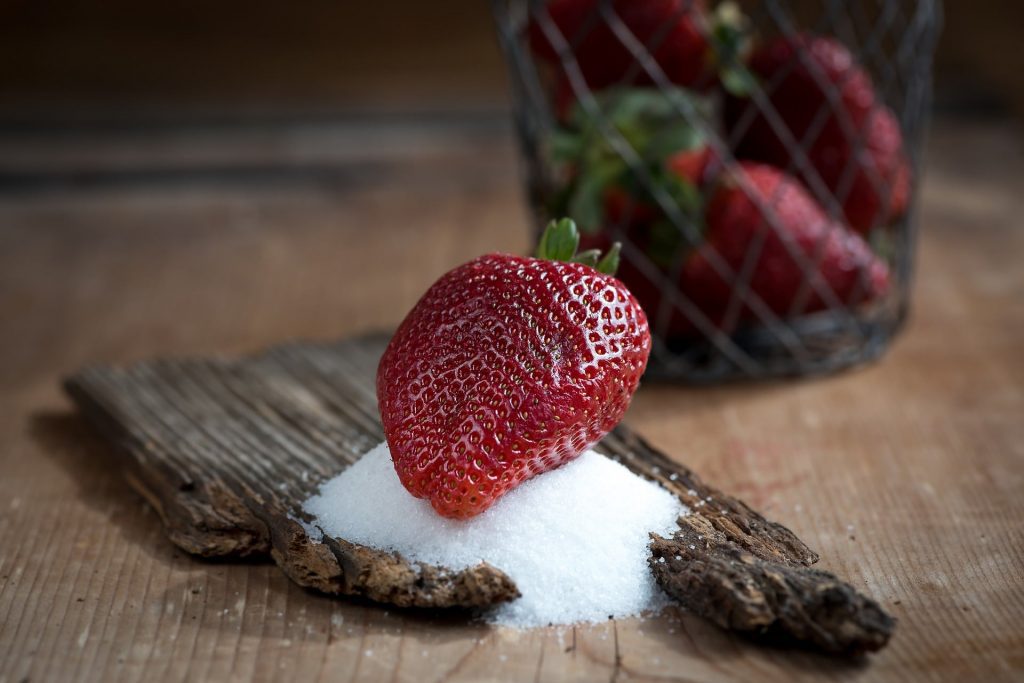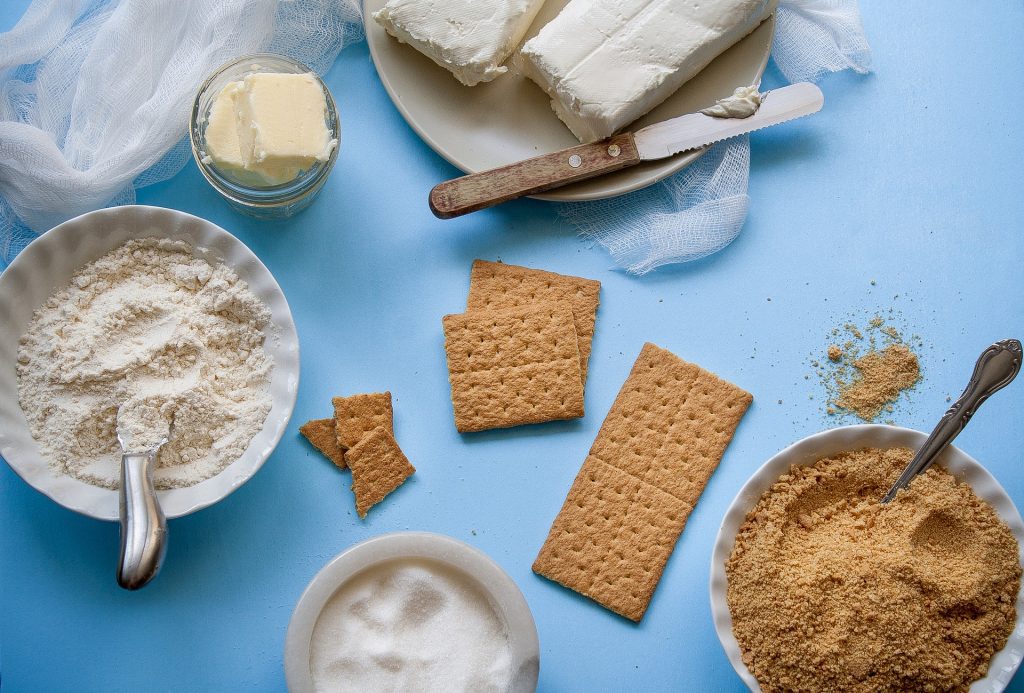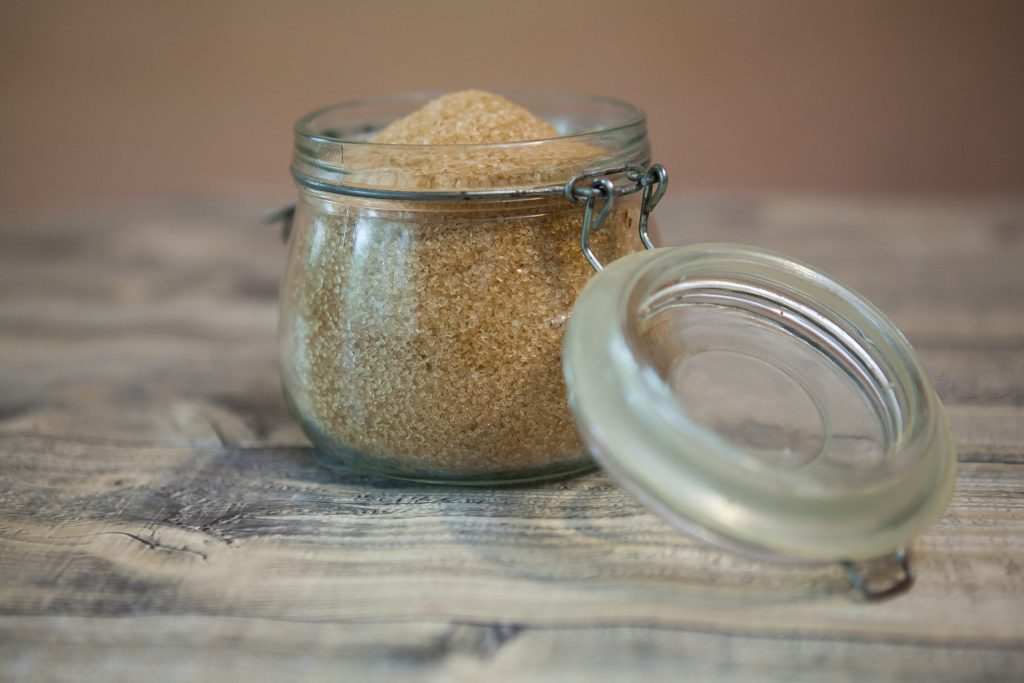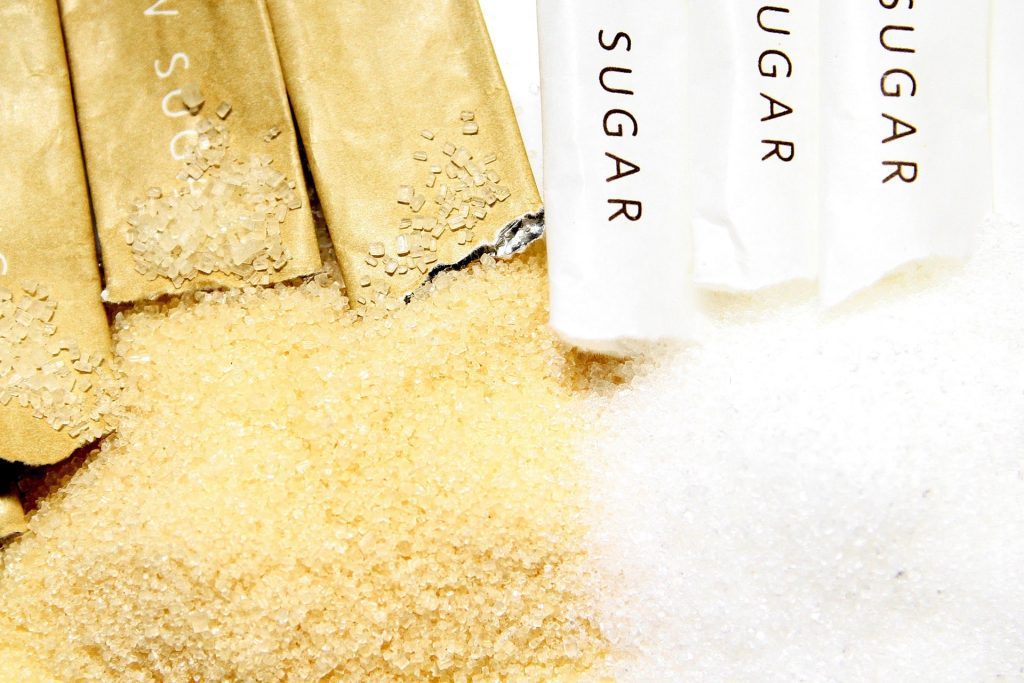What Is White Sugar?
White sugar is the most popular form of sugar that is consumed across the world. Apart from that, it is widely available and mass-produced in order to meet consumer demand. Manufactured by refining sugar and removing the molasses, there are certain minerals such as calcium, potassium, and iron, which are normally found in molasses, which are removed from white sugar.

White sugar is also present in different varieties such as granulated sugar, caster sugar or superfine sugar, powdered sugar, and sugar cubes.
What Is Brown Sugar?
Brown sugar, unlike white sugar crystals, is completely unrefined and contains molasses, which in turn give it its brown color. Brown sugar crystals, as compared to white sugar, are small and more densely packed with nutrients as per volume. It is also considered to be a raw form of sugar as it does not undergo processing, thus retaining the mineral content thanks to the water-retention property of molasses.
Related Reading: We review products over days, and sometimes weeks, so you can shop better. Read our Tastiest Mishti Doi To Buy Review here.
Due to its water-absorption property, it is important for you to keep brown sugar in a sealed storage unit, as it might increase its shelf live infinitely.
How Is Brown Sugar Different From White Sugar?
The difference between brown sugar and white sugar is due to the presence of molasses in brown sugar crystals and its absence in white sugar crystals. Molasses, being rich in minerals like potassium and iron, provide brown sugar with the required amount of minerals, adding further to its nutritional value.
The densely packed brown sugar crystals, unlike white sugar, contain more calories and minerals per unit volume. So, it is highly advised to avoid any one of these sugar forms if you are suffering from diabetes.
Which is Healthier: Brown Sugar or White Sugar?
Due to its mineral content, it is safe to say that brown sugar has an upper hand over white sugar if we are taking their benefits into account. The mineral content present in brown sugar is known to have dilating effects and thus reduces the severity of the side-effects caused by the excess of salt in your bloodstream. Salt, when present in high quantity can make it hard for the excess water to escape from our cells, thus increasing your blood pressure. However, the presence of minerals like potassium balances out the sodium in salt and makes it easier for the excess water to make it to the bladder, significantly lowering the blood pressure, which also gives brown sugar an ability to promote cardiovascular health. But this is true only, and only when brown sugar is taken in controlled quantities, by someone who has an active lifestyle.

Apart from its mineral content, the other thing that helps the case of brown sugar is its raw nature. After the refining process, when the white sugar crystals are manufactured, they are filled with carbohydrates, which could further add up to the fat in your body.
In conclusion, sugar is an ingredient that is supposed to be consumed in a regulated manner no matter in what form it is consumed, a higher quantity of glucose in your body can cause adverse effects such as insomnia and weight gain. So, no matter which sugar you choose to add to satisfy your sweet tooth, make sure that your consumption is in a limit.













